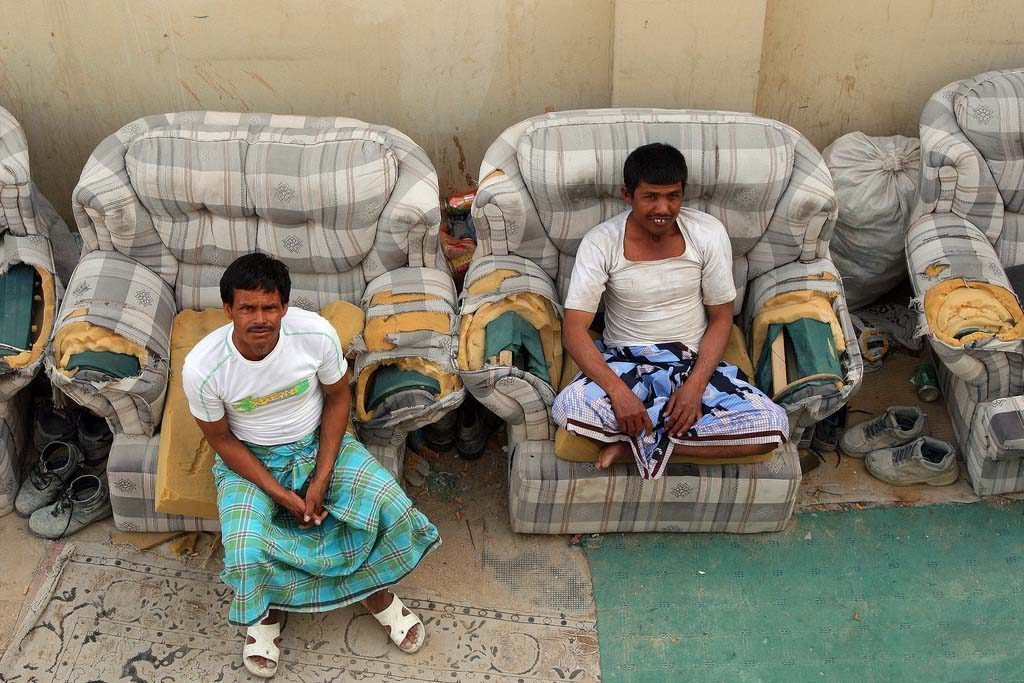
Asserting that “runaway workers” are a “social, security and economic threat” to the country’s residents, Qatar’s Ministry of Interior has asked people to weigh in on how to tackle the issue.
In a statement posted on Facebook, Twitter and the ministry’s website, the MOI defined “runaway workers” as foreigners who come to Qatar under one company’s sponsorship but then work for someone else, or those who enter the country and find jobs without the proper documentation.

The MOI added that such people, including some house help, contribute to crime and urged awareness so that people can avoid becoming victims.
Acknowledging that some people seek other jobs because their sponsors have not met their obligations, the MOI has asked residents how to address the issue of this gray market, saying:
“What’s your opinion of those who bring workers (to Qatar, although) they don’t need them? What’s the social role that could be done to (solve this issue)? And are there any suggestions you deem appropriate in that regard?”
Mixed reactions
On Facebook, some of the comments defended such employees, citing their complicated situations. For example, Mostafa Bozina said:
”Why is it the (workers’) fault if the company or family initially brought them to work, but then didn’t provide them with a job.? Do you want to return them back to their country that easily?”

Another, Abou Gaa’far, said:
”Yes, undocumented workers do have their disadvantages, but at the same time they have their benefits, because if an employee travels or leaves for whatever reason and there’s no replacement, the employer is forced to resort to the undocumented workers.”
Meanwhile, on Twitter, one resident called for harsher penalties against undocumented workers:
@MOI_Qatar لو تعاون دول الخليج في منع دخول اي عامل منهم لمده اقلها خمس سنوات الى اي دولة منهم في حالة العمالة السائبة لأختفت الظاهرة
— عبدالله الانصاري (@boturke8183132) November 23, 2015
Translation: If the GCC countries cooperate to prevent any of these undocumented workers from entering the country for a minimum of five years, the phenomenon would disappear.
But another sarcastically suggested putting tracking devices on expats as they come into the country:
@MOI_Qatar إنتوا لو تَحُطُّون في إذن كل عامل يدخل الدوحة شريحة للتتبع ما فيه ولا عامل راح يهرب. مثل الشريحة اللي يحطونها في رجل الطير.
— Ali Mohammed (@Dr_dob) November 23, 2015
Translation: If you put a tracking device inside the ears of every worker that enters Doha, like the ones put on a bird’s leg, no worker would run away.
Penalties
Though Qatar takes a harsh stance on undocumented workers, authorities are increasingly shifting more of the blame onto employers.
Last year for example, harsher punishments were enforced against companies and individuals who recruit undocumented workers, rather than the employees themselves.

These firms faced the possibility of being blacklisted, essentially not being allowed to recruit new employees for two years.
Those found guilty of sheltering or employing them could also face prison and fines of up to QR100,000.
According to the labor law, the workers themselves face punishment of up to three years in jail and QR50,000 in fines.
Last April, more than 40 expats and nationals involved in supporting the illegal practice were sentenced to jail time from one to three years.
At the same time, the ministry’s Search and Follow Up Department (SFD) referred some 50 companies to the public prosecution and booked 84 other cases related to “visa trading,” or the buying and selling of work permits.
Human rights
The shift in focus from “illegal workers” to employers comes as Qatar faces intense international scrutiny over the treatment of its workforce ahead of the 2022 World Cup.
It takes into account what rights groups have been saying for years – that some expats, for example, may have no choice but to work odd jobs if their current employers are not paying their salaries regularly, or withholding their passports and preventing them from leaving the country.

Last month’s amendments the controversial kafala sponsorship system were also part of Qatar’s efforts to face worldwide criticism regarding these issues.
However, the legislation, which doesn’t take effect for at least another year, continues to restrict foreigners’ ability to change jobs and leave the country.
For example, under the new law, expats still need approval from their employers before leaving the country, though there is now a grievance committee one can appeal to in the event that permission is denied.
Meanwhile, employees who finish fixed contracts will no longer need their sponsor’s approval to take up another job, though they would still need the approval of the Ministry of Labor and Social Affairs and the MOI.
However, before the contract ends, an expat cannot change jobs, unless he obtains permission from his sponsor.
Thoughts?







